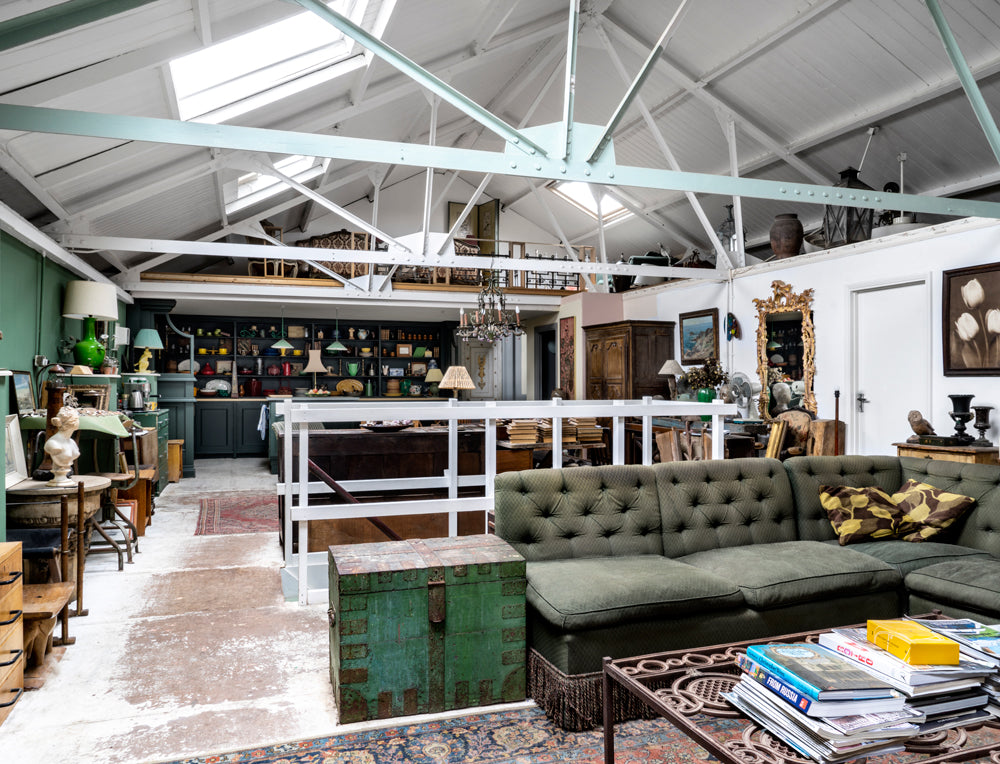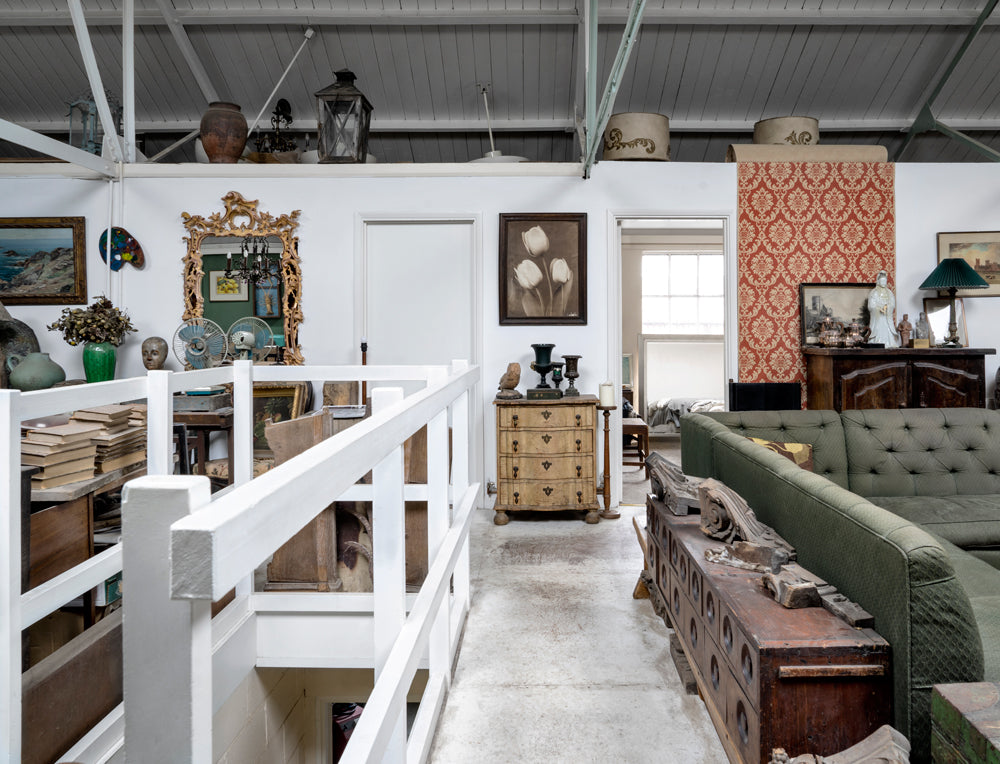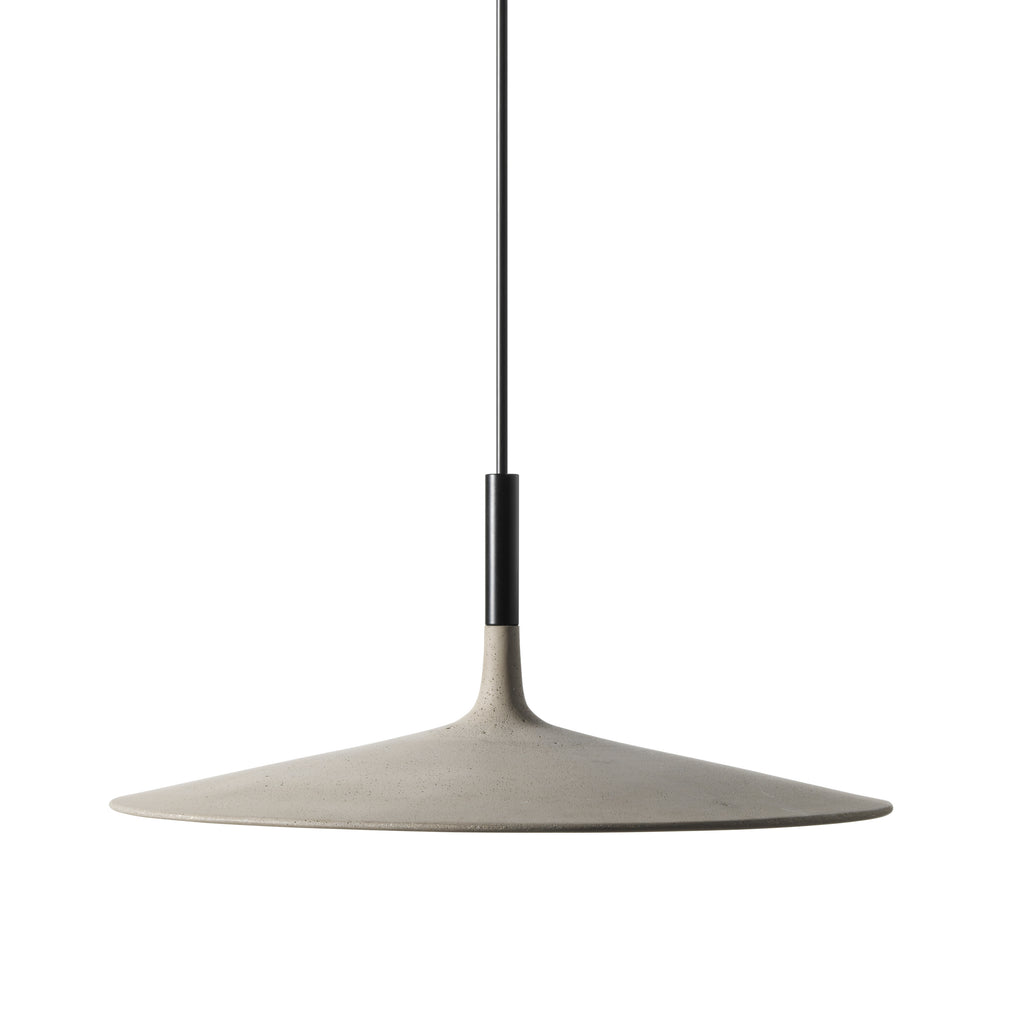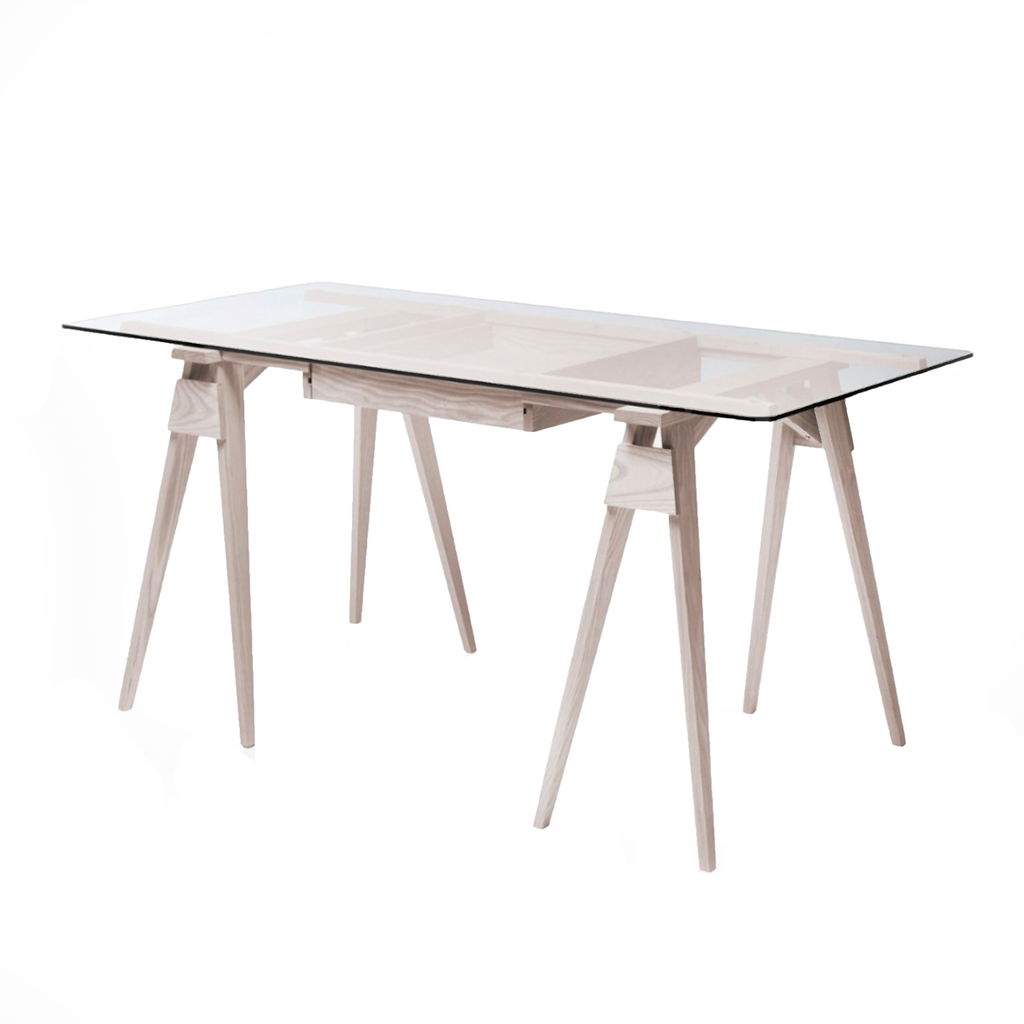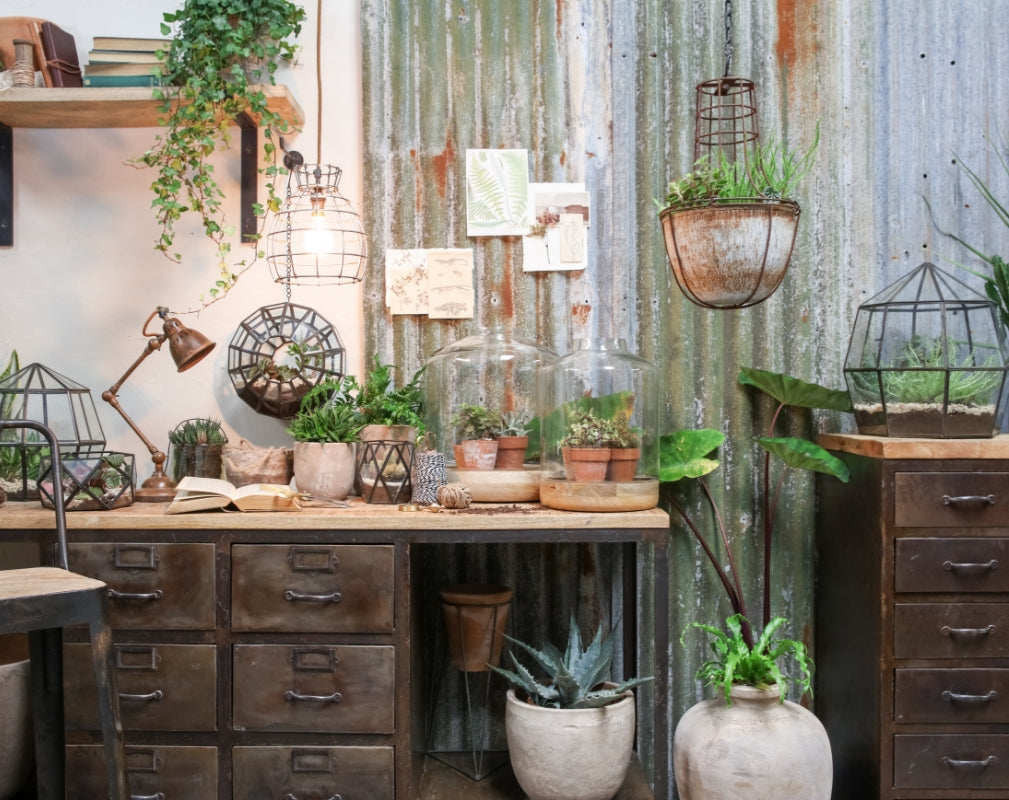
Handmade or hand-selected, we're proud to support exquisite craftsmanship and specialist skills. Join us as we sit down with artisans, curators and designers in our Meet The Designer series.
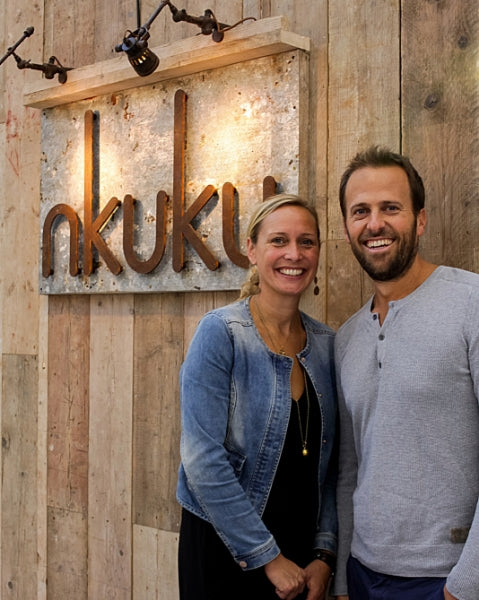
Celebrating organic beauty and character in a way that enables people to create a home that expresses who they are is an integral part of Nkuku's vision. Here, we sit down with Nkuku founder Alex Cooke to learn about their founding values, their work with skilled artisans from around the world and the role of sustainability in their design process.
How did Nkuku begin and is there a story behind the name?
Alistair and I set off with back packs and flip flops on a round the world trip back in 2001. We were away for about a year, with six months of that time spent in Africa. We borrowed the name ‘Nkuku’ from a village in Zambia, we liked the sound of it and shape of the letters, it was on the same trip that we came up with the idea to start a business together and we kept the name in case we ever managed to actually do it!
Can you tell us about your founding values?
Having worked a little in the voluntary sector and been lucky enough to travel it was always important for us to know and support the artisans we worked with. Right from the start our values were to be environmentally conscious, trade fairly and understand the processes behind how things were made.
You work with a great number of skilled artisans from around the world to create your products. How do you find these artisans?
Initially we met them by travelling, it was a double whammy for us as we loved to travel and loved learning about traditional skills and meeting talented artisans. As the business has grown we have made some more recent contacts at trade shows. We still work with the majority of suppliers and artisans we met all those years ago - long term business relationships are an important part of our approach.
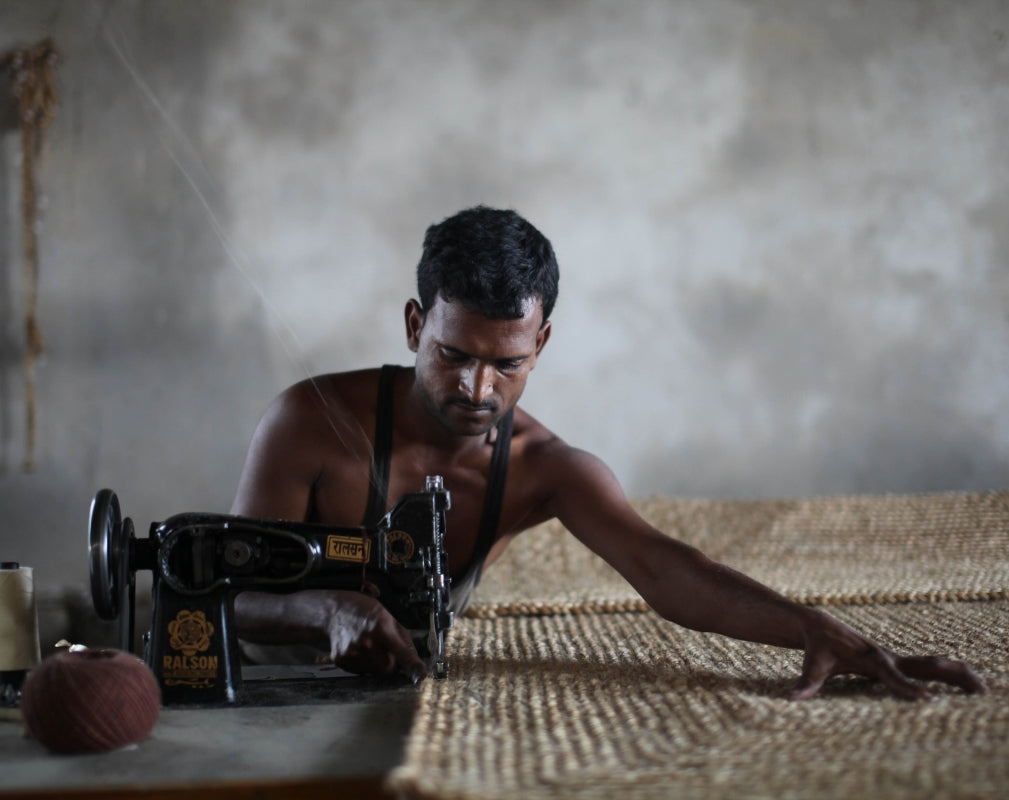
“Right from the start our values were to be environmentally conscious, trade fairly and understand the processes behind how things were made.”
You often work with suppliers who are at the start of their fair trade process. Why is this?
We did use to be WFTO certified which we support whole heartedly, but we realised that in some cases we were missing out on opportunities. As long as a producer has the inclination to pursue the fair trade criteria it felt better in some ways to work with them on that journey. There are some standards we don’t ever tolerate including use of child labour but we have grown and improved with several of our suppliers over the years. We focus a lot on transparency.
How important is sustainability in your production processes?
It is an integral part of our product collection, we focus a lot on natural and sustainable materials from jute and mango wood to recycled glass and cotton paper.

Your products are all hand-made. How important is this?
Our passion for traditional skills and awe of some of the techniques still in use today is what we believe sets our product offering a part. The amount of time and natural talent that goes into decorating our Indigo Drop mugs or the process behind our Mali pottery is unique.
Can you tell us a little more about the materials used in your collections?
We work a lot with sustainable mango wood, this forms the basis of many of kitchen items and furniture items. We often blend it with contrasting materials like iron for an industrial look. We also work with recycled glass, this uses considerably less emissions that new glass material, and forms the basis of all our Christmas glass decorations as well as our glassware. Jute and hemp as you know I’m sure, are very eco crops requiring very little pesticides and irrigation. We love the texture of these raw materials and our rugs, baskets and arm chairs are all skilfully woven using these raw materials.
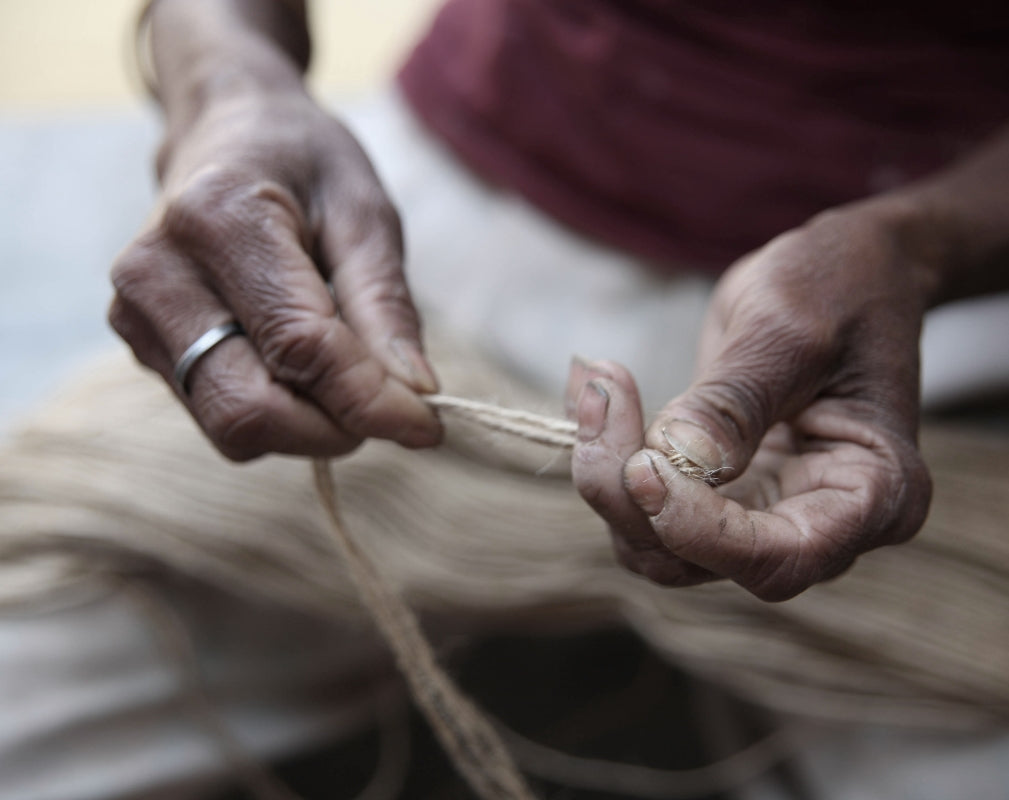
Nkuku works with skilled artisans who hand-sew the jute rugs.
What are your best-selling items?
Our Indigo Drop tableware collection is a very popular. Each piece is handmade in Vietnam and painted by hand. The bowl in this collection has over 1000 indigo drops on its exterior. Our Kiko frames are probably our most iconic product. They are see through frames that look stunning on a wall filled with photos, artwork or foliage.
Can you tell us about your lifestyle store in Devon?
Our Lifestyle Store was an exciting opportunity. We had driven past this derelict set of barns for a few months and finally found the time to stop and take a look. As soon as we stood in the courtyard we just knew it was the perfect spot to open our first store. The project to develop them took 18 months but it was a real labour of love, working with local tradesmen and artisans to make the bespoke windows.
We tried to remain as true as we could to the origins of the building and the store has a rustic feel. It is shaped in a horse shoe around a courtyard, which is a lovely place sit when the sun shines. The store is filled with our collection of homewares from bespoke sofas to tableware and gifts. We think it has a lovely feeling and sense of space, and the coffee is good, which was always important to us!
What exciting developments can we expect to see from Nkuku in the next year?
This year is particularly special as we are celebrating 15 years, which seems incredible really. Regarding new developments, it feels like everything is always moving at 100 miles an hour. Our spring collection has an array of new products from colourful new tableware to stylish new wall terrariums and this year sees the launch of our first new summer collection which incorporates some exciting new pieces for the garden. We will also we launching our Indian Antiques online, currently these have only been available in our Devon store so now you’ll be able to explore these unique pieces on line.
We would like to thank Alex for taking the time to talk to Warehouse Home. For more information, visit the Nkuku website.

Nkuku stocks a wide range of terrariums and planters which are ideal for bringing more greenery into an urban space.
